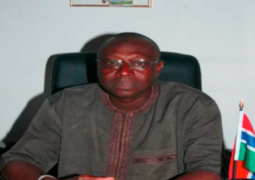Access to electricity expands the number and variety of business and job opportunities available. Electricity provision means creation of new markets for businesses and more job openings for individuals.
On the other side, unreliable electricity provision makes operating a business more challenging than usual, and stagnates economic development efforts.
Researchers say African manufacturing enterprises lose six per cent of sales revenues due to lack of consistent electricity.
If unreliable electricity can cost that much, how about its unavailability; that means no business; it also means underdevelopment.Without electricity, education, healthcare and other critical services would decline.
It is in view of the importance of power to national development that we welcome efforts and initiatives by the Gambia government to expand electricity coverage in the country.
We, therefore, welcome the government’s recent commissioning of the electrification project in the West Coast Region, whose funding came from government coffers.
This is a worthwhile initiative, looking at the benefits it will bring to the 48 towns and villages in the West Coast Regionthat will be connected to the power grid.
Today, Brazil, Russia, India, China, and South Africa, commonly known as the BRICS, are the fastest developing countries in the world primarily because of high growth rates in electricity production.
The BRICS members are all newly-industrialised countries distinguished by their large, fast-growing economies which could not have been possible without electricity.
If Gambia is also to attain the development standards of the BRICS and surpass them to attain an economic superpower status, the government shouldcontinue to launch and commission more electricity projects across the country.
There is no doubt that by investing in energy infrastructure, governments can help both small and large businesses simultaneously to create new markets, as well as employment for the teeming number of youths entering the labour market annually.This will also help to reduce poverty significantly.
However, there is more to access power than installing electricity infrastructure. The price tariff for electricity, to a large extent, determines the impact of electricity on people’s lives.
And as it is today, The Gambia is said to be one of the countries in the world with the highest tariffs for electricity as confirmed by the European Union programme manager.
The high cost of electricity in the country has gravely resulted in low access to electricity for majority of Gambians and is limiting the development of the private sector.
This means that even though a larger percentage of the country, 45 percent, has access to electricity infrastructure, not all could fully utilize it to improve their lives.
Therefore, we are calling on the government to consider reducing the electricity tariff so that more people are able to access and explore the full potentials of electricity.
Besides, The Gambia can only reach global competitiveness and abolish poverty if electricity supply in the country is substantially increased.
The Gambia has a critical electricity generating shortage, and that must be addressed by huge additional generating capacity if the country is to prosper significantly.
“If it weren’t for electricity, we’d all be watching television by candlelight.”
George Gobel




